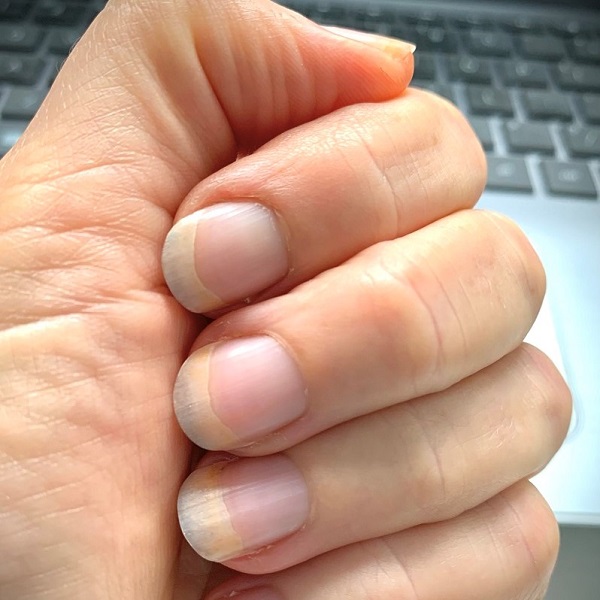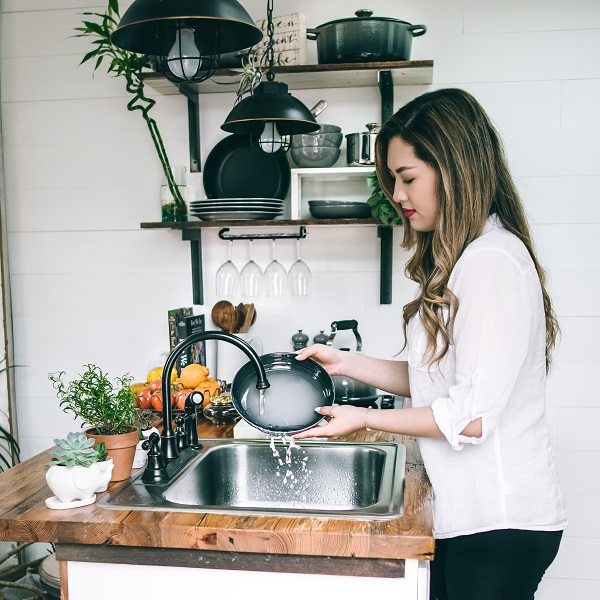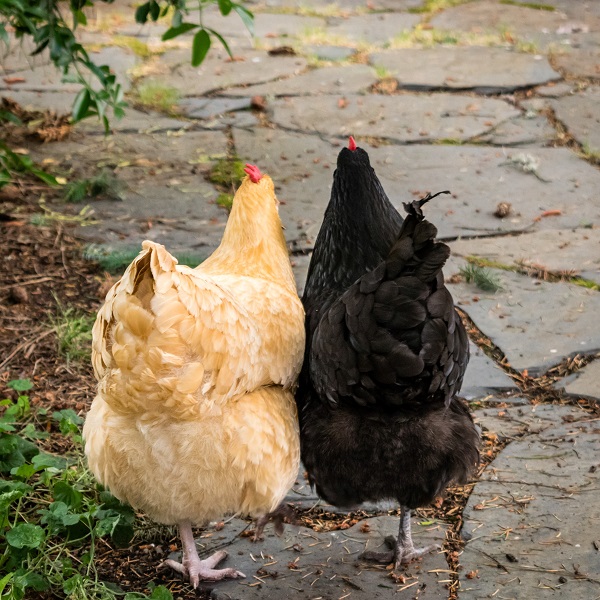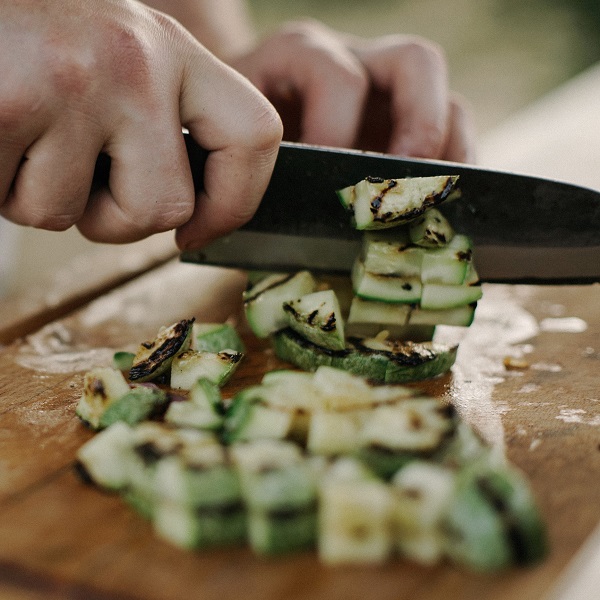Most of us need a strong reason to change, especially big change, like adopting a new way to eat. For me, that reason was my health. I wanted to do everything I could to turn around the looming heart disease, and therefore avoid being medicated for life. When I found out that I could avoid heart disease through lifestyle, it was the thrust I needed to make the big change to eating a Whole Food Plant Based (WFPB) diet. (1)(2)
I’m glad I made the change to eating all plants, and avoiding processed foods. After five years of living this way, I am thoroughly happy with my heart health: my blood pressure is under control, and my cholesterol is within the normal range. Woohoo!
What I didn’t realise is that there would be so many other unexpected benefits too! These are the bonuses I gathered along the way:
1. Strong nails
This has been the greatest delight for me from changing how I eat! I have always had soft, bendy nails. My nails had been getting progressively worse as I aged too, and by the time I started eating WFPB, they had become brittle and I couldn’t grow them at all. I was embarrassed to show my hands.
At first, I was disappointed that my change in diet didn’t impact the state of my nails. But then, about a year after the change, I suddenly noticed that my nails were actually long, for the first time in decades! It was magical, they were so strong, and they have stayed strong ever since.

Many health benefits happen quickly when you change to eating mostly unprocessed plant foods, but not so with your nails, as they take a very long time to grow. A change in diet will only affect new nail growth, not the nail that has already grown. From the cuticle to the tip of your finger nail, it takes 3-6 months to grow, The nail is being created from much deeper down in the finger, so it needs time to grow strong from the roots.
My experience is that patience is the key, and the results are fabulous!
2. Dishes are a breeze, and the oven stays clean
After a lifetime of cooking with oil and butter, I’ve also had a lifetime of hot soapy water to get the dishes clean. When I moved to a WFPB diet, I started avoiding oil with cooking – it is not a whole food, and is incredibly calorie dense.
Oh, the difference! Washing up when you stop using oil is incredibly easy!
Often times I only need to rinse the dishes clean, and I have been known to not even use hot water!
Doesn’t the food stick hard to the pots and pans, I hear you ask? Well… no. Despite all that we have “learned”, that oil is needed to prevent sticking, oil free cooking does not lead to stuck on food. Sautéing vegetables in water, stock, or in a dry pan works fine. And using baking paper or a silicone sheet to line oven trays, means they often don’t need cleaning at all.

And in a similar vein, when you don’t cook meat any more, there is no more fat splattering in the oven. I can’t remember the last time we cleaned the oven. I’ll take that win!
3. Stable weight without really trying
Like a lot of women, keeping my weight under control can be a challenge. My (male) partner makes small changes, and the weight drops off him. Me, not so much. We both love to eat, so this is a challenge!
Since eating WFPB I have experienced a noticeable improvement in my ability to maintain my weight. It’s because the food is less calorically dense than a standard diet. That is, the food has more volume for the same amount of calories, so I am getting more full from it. (3)
This helps with feelings of satiety, and makes it naturally hard to over eat.
The only time things get out of whack is if I indulge in too much wine. Alcohol is a health challenge for many reasons, and it also carries a lot of calories. So I need to be mindful of how much wine I drink.
4. The supermarket basically gets smaller
When we stopped eating animal products, and pre-prepared foods, the areas of the supermarket we needed to visit reduced. There are whole aisles we no longer need to go down, which has made shopping much easier.
It’s weirdly satisfying to wander past the meat aisle and the cheese section and take absolutely no notice of what is there!
When I first cut out the animal products in our diet, I would say that the supermarket became more complicated, while we worked out if they sold things like nutritional yeast. But that period was short, and we now have our groove and know exactly where to go to grab the ingredients we need.
There are less labels to read too, because we buy mostly ingredients. I check the labels on canned goods, usually to check their salt (sodium) level or to make sure they don’t include any unexpected additives. But for the bulk of our food, we can enjoy simple foods, that we select according to seasonality and price.
5. A quieter heart
I was primarily motivated to change the way I ate because of my health. I chose to start prioritising whole food (that happened to be plants), because this is scientifically proven to prevent and reverse heart disease. (1)(2) I didn’t start from the position of wanting to be a vegan. That is, I didn’t change my diet in order to stop harming animals.
But stopping eating animal based foods has had a fascinating impact on how I feel about the animals we share this planet with. I now believe I was convincing myself, on some subliminal level, that what I was doing was ok. The sense of freedom I feel now is remarkable – I know that my actions don’t lead to the misery of other living beings. I look at animals in a much more compassionate way, as souls who deserve the freedom from living to serve humans.

6. No more worries about food causing sickness
The need to constantly wash my chopping board and hands, to prevent cross contamination of foods, has all gone away now that I don’t eat meat. As has the juggling act of making sure this raw thing doesn’t touch that cooked thing, It makes food preparation and storage so uncomplicated!
Cooking still has its challenges, as food needs to be cooked so that it tastes nice. Anyone who has had undercooked eggplant or overcooked broccoli will agree! But the worst that can happen is that it tastes gross.
It’s great to know that I’m not going to make anyone sick from undercooked chicken, for instance.
Now that I have experienced this ease, it has made me wonder why food that comes with the risk factors associated with raw meat, is considered to be healthy by most people? A bit like No 5 above, there is a lot of peace to be gained from no longer being concerned that the food I prepare or eat might be harbouring disease. (4)
7. Food bill is cheaper
Some people have this idea that eating a plant based diet is expensive. And I’m not sure why. Maybe it is, if you want to eat pre-prepared foods and meals, but they can easily be avoided.
The staples of our weekly shop are plenty of fruits and vegetables (fresh/frozen and canned) plus whole grains and legumes (rice, pasta, beans), and these are all relatively cheap. Beans and rice is the classic pauper meal, that is filled with nutrition, after all. Most of the spices we use are bought cheaply from Indian and Mediterranean food stores (seeing as we use lots!). The only expensive things that get bought regularly are nuts, plant based yoghurt & milk and some frozen fruit varieties.
Compare the prices of these foods to the price of meat, cheese and olive oil, and it is easy to see why we save money.
When you eat almost exclusively plants, the volume of food you eat is relatively high compared with omnivores. But the bulk of it is very cheap. The fantastic outshot of this is we spend less than we used to, but always have a much fuller fridge. It’s great!
And as an extra bonus, eating out is nearly always cheaper too. Most vegetable based dishes are cheaper than their meat based cousins.
8. Way more energy
This was one of the earliest things I noticed after I changed to eating more whole foods and mostly plants. I hadn’t even removed animal based food completely yet. But I felt this amazing energy coursing through my body each day. The feeling is less pronounced now, as I think I have got used to it. But I still love this feeling of being energised and alive.
I’ve pondered why this feeling exists, and one idea I’ve had is that it comes down to the nature of the food. Plants have this magical ability to take water and nutrients from the soil, combine them with energy from the sun and create growth. They pass on all that energy when us animals eat them. Seeds and beans contain all the nutrients to make a new plant, so they are powerhouses. Fruits and vegetables are also high in antioxidants, which help fight inflammation in our body, which also helps our bodies feel great!

9. Better immunity and better mood
Immunity is hard to completely understand, but I know my immunity is way better than it was. I hardly ever get colds any more, and when I do, they don’t knock me down like they used to. The last time I had a sick day, it was because I put my neck out. I actually can’t remember the last time I caught something that made me take to my bed.
I am also much more emotionally stable since eating this way. There are other changes going on in my life, like menopause. And aging comes with the benefit of life experience, that can help keep life in perspective. But I definitely, feel calmer within myself, and I am sure my sense of wellbeing comes partly from my food. I have written more about this here.
10. Ninja knife skills
It’s hard to say for certain that this is actually a bonus, or really just a consequence. When you cook meals that include lots of vegetables and hardly any processed foods, you end up chopping a lot of stuff.
When you increase your plant intake, you have no choice but to get much, much better at cutting things up!
I have become way more adept at using my food processor, and I have developed ways of making everyday chopping easier and more fun. I pile things together, so that I’m not having to make as many slices to get the chopping done.
Variety can help out too, as it stops me from getting bored. To keep it varied, I cut food in different angles and sizes to see how it effects the final dish.

I find that bulk weekly preparation is a useful thing to do. The process of preparing a whole lot of food at once can be a practice in mindfulness. I find that spending time focusing only on the preparation of the vegetables in front of me can be a great way of quieting the mind and staying in the present.
If you are keen on some hints and tips for bulk prep, I describe how to make bulk coleslaw here.
There are my ten surprise bonuses for eating a Whole Food Plant Based diet. I hope you enjoyed them!
If you there are any other bonuses, that you have experienced, then please let me know! I’d love to hear from you!
Abundantly yours!
(1) Ornish, Dean, 1995, Dr. Dean Ornish’s Program for Reversing Heart Disease: The Only System Scientifically Proven to Reverse Heart Disease Without Drugs or Surgery, Ivy Books
(2) Esselstyn, CB Jr., 2008, Prevent And Reverse Heart Disease: The Revolutionary, Scientifically Proven, Nutrition-Based Cure, Avery
(3) Nutrition Facts Org, Eating More to Weigh Less, accessed 3 June 2022, https://nutritionfacts.org/video/eating-more-to-weigh-less/
(4) Ministry of Primary Industries, How to handle raw meat safely and avoid cross-contamination, accessed 3 June 2022, https://www.mpi.govt.nz/food-safety-home/preparing-and-storing-food-safely-at-home/how-handle-raw-meat-safely-avoid-cross-contamination
Main photo: Ivana Cajina on Unsplash
Dishwashing photo: Tina Dawson on Unsplash
Chicken photo: Jennifer Uppendahl on Unsplash
Jumping person photo: Larry George II on Unsplash
Chopping board photo: Max Delsid on Unsplash








Recent Comments